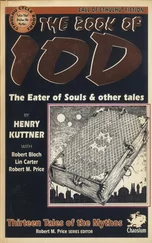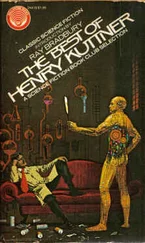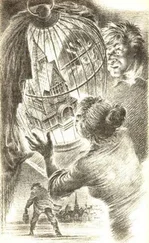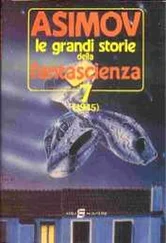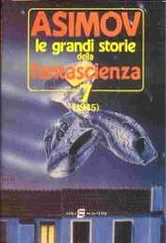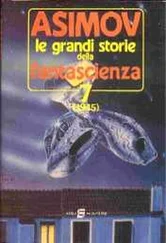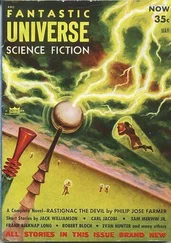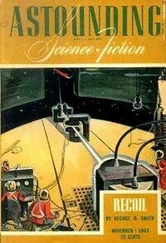Henry Kuttner - Ghost
Здесь есть возможность читать онлайн «Henry Kuttner - Ghost» весь текст электронной книги совершенно бесплатно (целиком полную версию без сокращений). В некоторых случаях можно слушать аудио, скачать через торрент в формате fb2 и присутствует краткое содержание. Жанр: Фантастика и фэнтези, на английском языке. Описание произведения, (предисловие) а так же отзывы посетителей доступны на портале библиотеки ЛибКат.
- Название:Ghost
- Автор:
- Жанр:
- Год:неизвестен
- ISBN:нет данных
- Рейтинг книги:4 / 5. Голосов: 1
-
Избранное:Добавить в избранное
- Отзывы:
-
Ваша оценка:
- 80
- 1
- 2
- 3
- 4
- 5
Ghost: краткое содержание, описание и аннотация
Предлагаем к чтению аннотацию, описание, краткое содержание или предисловие (зависит от того, что написал сам автор книги «Ghost»). Если вы не нашли необходимую информацию о книге — напишите в комментариях, мы постараемся отыскать её.
Ghost — читать онлайн бесплатно полную книгу (весь текст) целиком
Ниже представлен текст книги, разбитый по страницам. Система сохранения места последней прочитанной страницы, позволяет с удобством читать онлайн бесплатно книгу «Ghost», без необходимости каждый раз заново искать на чём Вы остановились. Поставьте закладку, и сможете в любой момент перейти на страницу, на которой закончили чтение.
Интервал:
Закладка:
GHOST
by Henry Kuttner
The President of Integration almost fell out of his chair. His ruddy cheeks turned sallow, his jaw dropped, and the hard blue eyes, behind their flexo-lenses, lost their look of keen inquiry and became merely stupefied. Ben Halliday slowly swivelled around and stared out at the skyscrapers of New York , as though to assure himself that he was living in the Twenty-First Century and the golden age of science.
No witches, riding on broomsticks, were visible outside the window.
Only slightly reassured, Halliday turned back to the prim, grey, tight-mouthed figure across the desk. Dr. Elton Ford did not look like Cagliostro. He resembled what he was: the greatest living psychologist.
“What did you say?” Halliday asked weakly.
Ford put his finger tips together precisely and nodded. “You heard me. The answer is ghosts. Your Antarctic Integration Station is haunted.”
“You’re joking.” Halliday sounded hopeful.
“I’m giving you my theory in the simplest possible terms. Naturally, I can’t verify it without field work.”
“ Ghosts! ”
The trace of a smile showed on Ford’s thin lips. “Without sheets or clanking chains. This is a singularly logical sort of ghost, Mr. Halliday. It has nothing to do with superstition. It could have existed only in this scientific age. In the Castle of Otranto it would have been absurd. Today – with your integrators – you have paved the way for hauntings. I suspect that this is the first of many, unless you take certain precautions. I believe I can solve this problem – and future ones. But the only possible method is an empirical one. I must lay the ghost, not with bell, book and candle, but through application of psychology.”
Halliday was still dazed. “You believe in ghosts? ”
“Since yesterday, I believe in a certain peculiar type of haunting. Basically, this business has nothing in common with the apparitions of folklore. But as a result of new factors, the equation equals exactly the same as … well, the Horla, Blackwood’s yarns, or even Bulwer-Lytton’s ‘Haunters and the Haunted.’ The manifestations are the same.”
“I don’t get it.”
“In witchcraft days a hag stirred herbs in a cauldron, added a few toads and bats, and cured someone of heart disease. Today we leave out the fauna and use digitalis.”
Halliday shook his head in a baffled way. “Dr. Ford, I don’t quite know what to say. You must know what you’re talking about –”
“I assure you that I do.”
“But –”
“Listen,” Ford said carefully. “Since Bronson died, you can’t keep an operator at your Antarctic Station. This man – Larry Crockett – has stayed even longer than most, but he feels the phenomena, too. A dull, hopeless depression, completely passive and overpowering.”
“But that station is one of the science centres of the world! Ghosts in that place?”
“It’s a new sort of ghost,” Ford said. “It also happens to be one of the oldest. Dangerous, too. Modern science, my dear man, has finally gone full circle and created a haunting. Now I’m going down to Antarctica and try exorcism.”
“Oh, Lord,” Halliday said.
The Station’s raison d’кtre was the huge underground chamber known irreverently as the Brainpan. It was something out of classic history, Karnak or Babylon or Ur – high-ceilinged and completely bare except for a double row of giant pillars that flanked the walls.
These were of white plastic and insulated, and each was twenty feet high, six feet in diameter, and featureless. They contained the new radioatom brains perfected by Integration. They were the integrators.
Not colloids, they consisted of mind machines, units reacting at light-velocity speeds. They were not, strictly speaking, robots. Nor were they free brains, capable of ego-consciousness. Scientists had broken down the factors that make up the intelligent brain, created supercharged equivalents, and achieved delicate, well-functioning organisms with a fantastically high I.Q. They could be operated either singly or in circuit. The capability increased proportionately.
The integrators’ chief function was that of efficiency. They could answer questions. They could solve complicated problems. They could compute a meteorite’s orbit within minutes or seconds, where a trained astrophysicist would have taken weeks to get the same answer. In the swift, well-oiled world of 2030, time was invaluable. In five years the integrators had also proved themselves invaluable.
They were superbrains – but limited. They were incapable of self-adjustment, for they were without ego.
Thirty white pillars towered in the Brainpan, their radioatom brains functioning with alarming efficiency. They never made a mistake.
They were – minds! And they were delicate, sensitive, powerful.
Larry Crockett was a big red-faced Irishman with blue-black hair and a fiery temper. Seated at dinner across from Dr. Ford, he watched a dessert come out of the automat slot and didn’t care a great deal. The psychologist’s keen eyes were watchful.
“Did you hear me, Mr. Crockett?”
“What? Oh, yeah. But there’s nothing wrong. I just feel lousy.”
“Since Bronson’s death there have been six men at this station. They have all felt lousy.”
“Well, living here along, cooped up under the ice –”
“They had lived alone before at other stations. So had you.”
Crockett’s shrug was infinitely weary. “I dunno. Maybe I should quit, too.”
“You’re – afraid to stay here?”
“No. There’s nothing to be afraid of.”
“Not even ghosts?” Ford said.
“Ghosts? A few of those might pep up the atmosphere.”
“Before you were stationed here, you were ambitious. You planned on marrying, you were working for a promotion –”
“Yeah.”
“What’s the matter? Lost interest?”
“You might call it that,” Crockett acknowledged. “I don’t see much point in … in anything.”
“Yet you’re healthy. The tests I gave you show that. There’s a black, profound depression in this place; I feel it myself.” Ford paused. The dull weariness, lurking at the back of his mind, crept slowly forward like a gelid, languid tide. He stared around. The station was bright, modern and cheerful. Yet it did not seem so.
He went on.
“I’ve been studying the integrators, and find them most interesting.”
Crockett didn’t answer. He was looking absently at his coffee.
“Most interesting,” Ford repeated. “By the way, do you know what happened to Bronson?”
“Sure. He went crazy and killed himself.”
“Here.”
“Right. What about it?”
“His ghost remains,” Ford said.
Crockett looked up. He pushed back his chair, hesitating between a laugh and blank astonishment. Finally he decided on the laugh. It didn’t sound very amused.
“Then Bronson wasn’t the only crazy one,” he remarked.
Ford grinned. “Let’s go down and see the integrators.”
Crockett met the psychologist’s eyes, a faint, worried frown appearing on his face. He tapped his fingers nervously on the table.
“Down there? Why?”
“Do you mind?”
“Hell, no,” Crockett said after a pause. “It’s just –”
“The influence is stronger there,” Ford suggested. “You feel more depressed when you are near the integrators. Am I right?”
“O.K.,” Crockett muttered. “So what?”
“The trouble comes from there. Obviously.”
“They’re running all right. We feed in the questions and we get the right answers.”
“I’m not talking about intellect,” Ford pointed out. “I’m discussing emotions.”
Читать дальшеИнтервал:
Закладка:
Похожие книги на «Ghost»
Представляем Вашему вниманию похожие книги на «Ghost» списком для выбора. Мы отобрали схожую по названию и смыслу литературу в надежде предоставить читателям больше вариантов отыскать новые, интересные, ещё непрочитанные произведения.
Обсуждение, отзывы о книге «Ghost» и просто собственные мнения читателей. Оставьте ваши комментарии, напишите, что Вы думаете о произведении, его смысле или главных героях. Укажите что конкретно понравилось, а что нет, и почему Вы так считаете.

